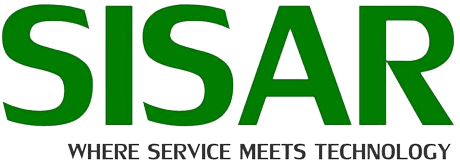Technological advancements in today’s digital era have drastically transformed workplace dynamics by facilitating the extensive adoption of cloud services. These services including machine identities have enabled remarkable scalability and provide accessibility that allows employees to access crucial data and applications from any location.

This capability enhances collaboration across various sectors and significantly boosts operational efficiency.
The Evolution of Workplace Dynamics and Security Challenges
However, as organizations embrace these changes, the importance of Zero Trust Security and machine Identities increase in folds. Implementing these security measures ensures that all devices and applications are authenticated. This process authorizes them, safeguarding sensitive data. It also maintains robust security across the network.
Alongside these benefits, the shift towards more flexible working environments introduces significant security challenges. The rise of sophisticated cyber threats, evolving in both complexity and frequency, necessitates a robust security framework. The Zero Trust model has become a cornerstone in cybersecurity. It is based on the idea that trust should never be assumed. This applies regardless of where the access request originates. It doesn’t matter if it’s inside or outside the network perimeter.
Understanding Zero Trust Security and Machine Identities in Security Frameworks
Machine identities play a pivotal role in modern cybersecurity frameworks. These unique digital credentials authenticate software codes, applications, virtual machines, or physical IoT devices within a network. Machine identities are essential for secure communications and operations. They help authenticate and authorize devices and applications. This facilitates controlled access to network resources and services.
Machine identities are made up of various credentials. These include API keys, cloud access keys, digital certificates, and other secret data forms. These credentials secure machine-to-machine interactions. Within a Zero Trust framework, the security measures for machine identities must be rigorous. They should be as stringent as those applied to human users. Every device’s integrity must be thoroughly vetted. Appropriate access controls should be implemented before granting access to sensitive information.
The Challenge of Managing Machine Identities During Digital Transformation
As organizations advance in their digital transformation journeys, managing machine identities becomes more complex. This increasing complexity requires advanced strategies and solutions. This complexity requires advanced strategies and solutions. It is estimated that machine identities now outnumber human identities by about 45:1 in typical organizational environments. This significant ratio indicates that machines often have more access to sensitive data than humans. This disparity poses substantial security risks. Mitigating these risks requires proper management.
Experts project a 68% increase in the deployment of SaaS applications. This growth further compounds the complexity of IT environments. As a result, the need for robust machine identity management systems becomes more evident. Effective secret management systems are also crucial to handle this increased complexity. This rapid expansion often exceeds the manual tracking capabilities of IT teams, underscoring the importance of automated and sophisticated management solutions.
Strategic Integration of Machine Identities into Zero Trust Architectures
Incorporating machine identities into a Zero Trust architecture enhances network security. This process requires developing policies to manage machine identities and their associated secrets. It also involves monitoring these identities to ensure security and compliance.. These policies are enforced as part of an organization’s identity governance framework.
Effective monitoring ensures the security and integrity of machine identities within the network. By implementing these measures, organizations ensure that only authenticated and authorized machines operate within their networks. This significantly improves their security posture. It also reduces the risks of unauthorized access.
Strategic Goals for Machine Identity Management
Enhanced Visibility
Organizations must achieve comprehensive visibility across all network activities Implementing policies and solutions that offer clear insights is crucial. These must cover both managed and unmanaged machine identities and their activities. Identifying potential security vulnerabilities requires such transparency. It also ensures the secure management of all machine identities.
Robust Security
Centralizing the management of machine identities and secrets is essential for establishing a solid Zero Trust framework. Techniques like centralized secret rotation eliminate risks associated with outdated or hard-coded credentials and enable detailed audits of each secret’s use.
Risk Mitigation in Digital Transformation
The dynamic nature of hybrid and multi-cloud environments requires flexible systems. These systems must be robust to effectively manage machine identities. Integrating security directly into CI/CD pipelines ensures continuous incorporation of security throughout the development process.
Operational Efficiency
Automation is key to enhancing operational efficiency. Utilizing automation tools streamlines machine identity management. These tools, along with native integrations with DevOps and cloud services, boost security. They also foster secure coding practices. This enhances productivity and accelerates the deployment of services.
Conclusion: Securing the Digital Future
In the digital age, organizations must strategically manage machine identities and secrets to navigate modern technological complexities effectively. This approach ensures security and efficiency in digital operations. A well-structured machine identity management policy strengthens defenses against cyber threats. It enhances overall security measures by effectively managing machine identities. Additionally, it mitigates risks associated with digital operations, ensuring a more secure and resilient environment. This essential strategy not only protects sensitive data and systems but also fortifies the organization’s security posture. As Zero Trust principles integrate into corporate security strategies, the critical role of machine identities grows in importance. These identities are increasingly vital, serving as foundational elements in successful digital transformations. They underpin security measures essential for adapting to evolving cyber threats and technological landscapes.
SISAR possesses deep expertise in Zero Trust architecture and assists clients in integrating machine identities seamlessly into their security frameworks. Our comprehensive services include developing identity management policies, implementing automation tools, and integrating security practices into CI/CD pipelines. Partnering with SISAR enables businesses to enhance their security posture, increase operational efficiency, and successfully navigate their digital transformation journey. Reach out to SISAR today to secure your digital future by effectively managing and protecting your machine identities.






